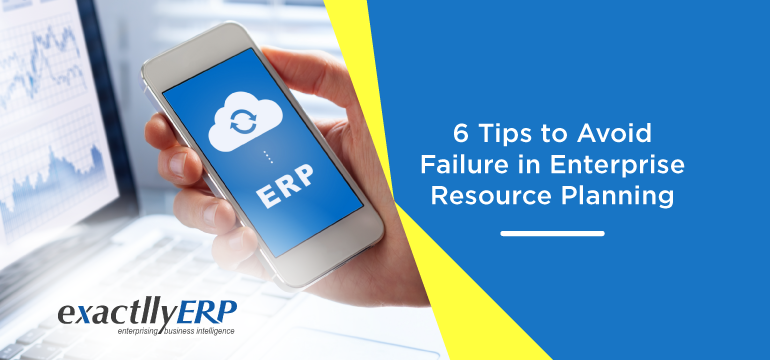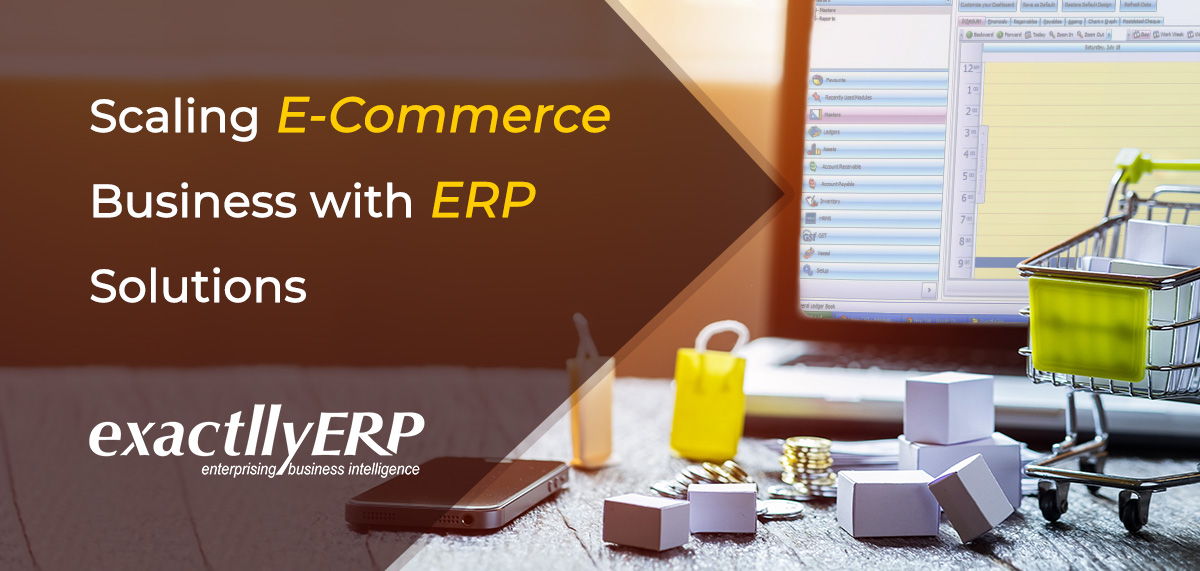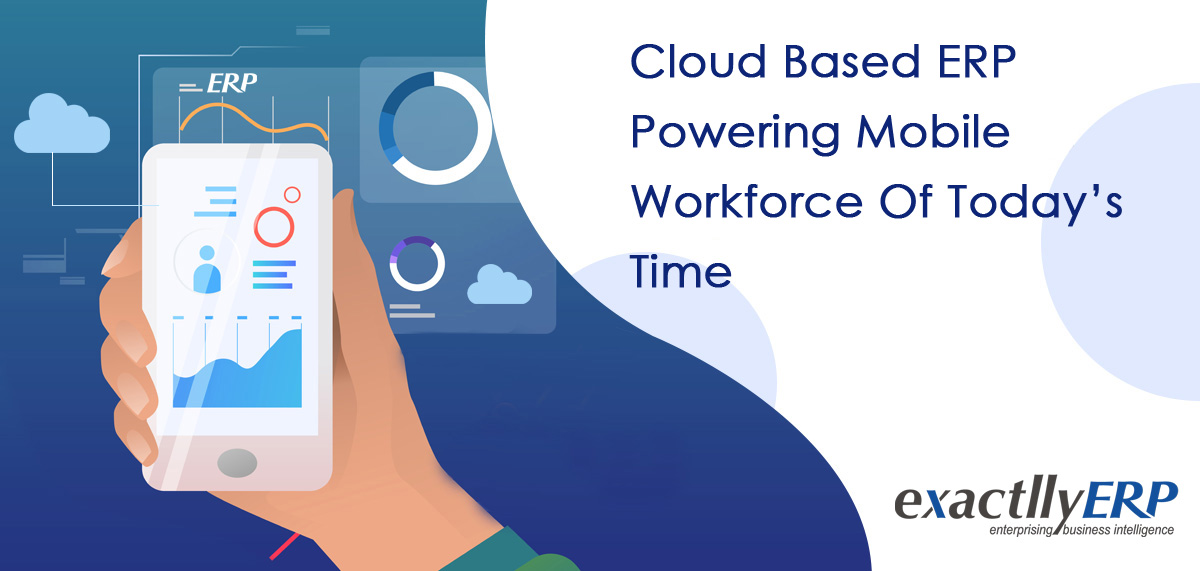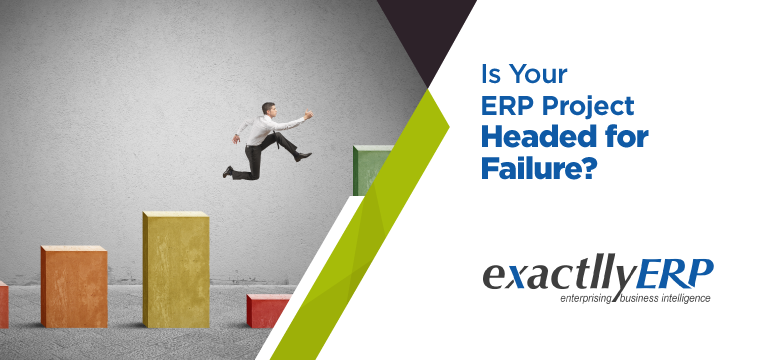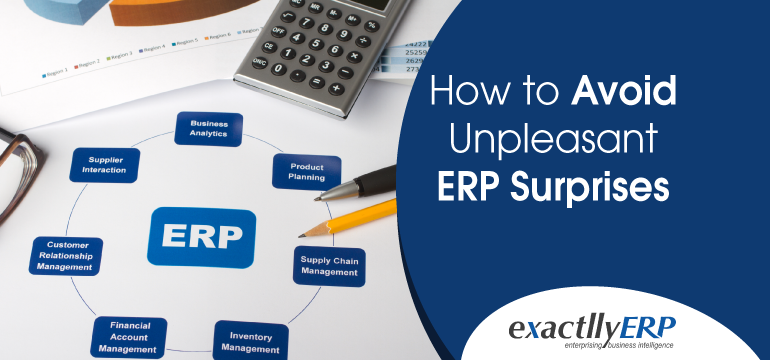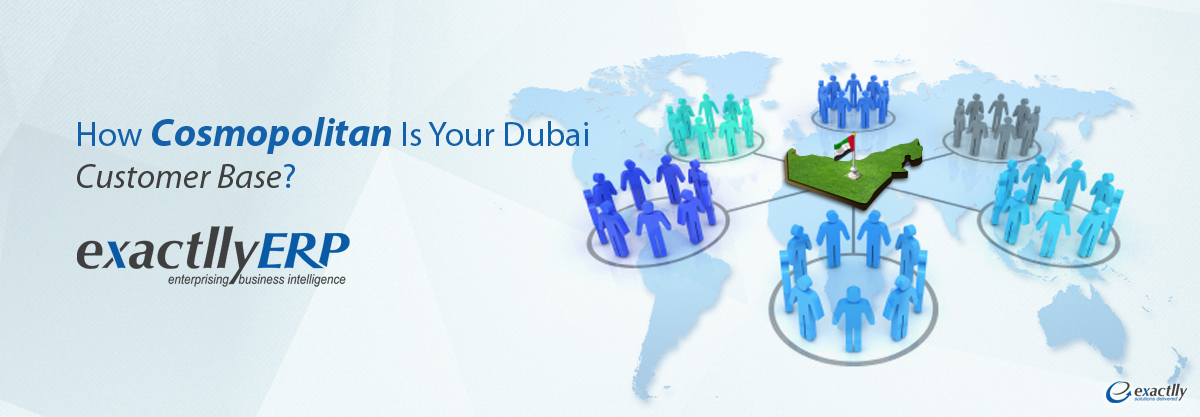Will ERP Fit the Way I Do Business
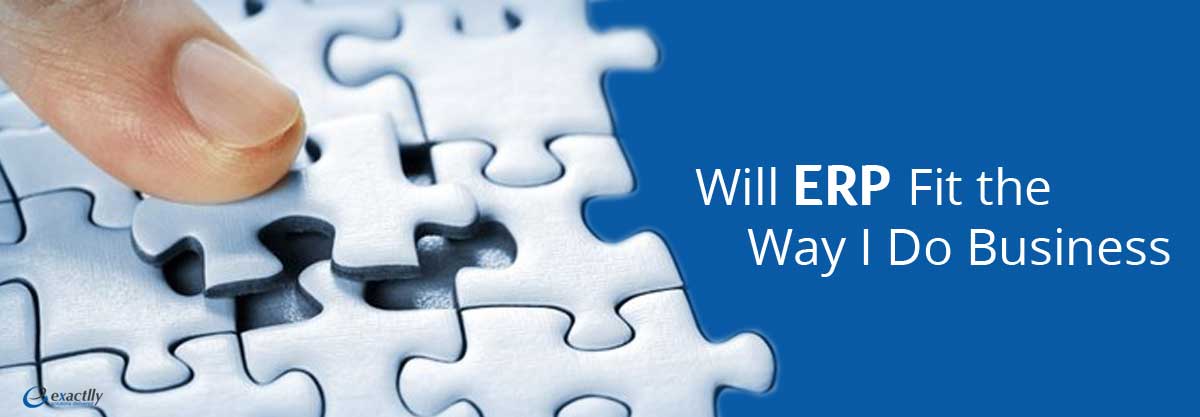
Business management
What is an ERP?
ERP is the business management software that allows the organizations to manage its different facets like planning, operations, sales and marketing. It seamlessly integrates various departments of the organization to function as a single unit determined to achieve a common goal. The information fed in the system by any department is visible across the organization and managers can easily access real-time state of the organization and gain meaningful insight.
Why do I need ERP?
It may or may not be necessary to adopt an ERP system for your business. Your business could be anything from manufacturing to services. ERP streamlines your business processes and leaves you with more time for analyzing the state of your business and take strategic decisions. Before you even think to adopt ERP, you must assess the current state of affairs.
You must remember ERP is not implemented to flaunt or gain competitive edge but clearly to improve business processes. Do it if you really find the need to do so. Unsuitable, unplanned and forced ERP implementation may prove disastrous for the companies where they lose time, money and customers.
Essential signs that indicate your business needs ERP
- Different software to cater to every need
Small-scale businesses aspire to automate all their business processes to rise above traditional methods of functioning. For this, they adopt software for different needs like billing, inventory, sales, accounting etc. Though it makes the job of every department easier, it becomes complex or impossible for the organization to integrate this information for any useful purpose. - Information access gives you the blues
Due to the absence of central database system, information is spread across the organization in bits and pieces. It is tedious to get the details from every system and reorganize it for analyzing it. It is a sheer waste of time affecting your efficiency and responsible for slow decision-making process. - Cost accounting is a major concern
Cost accounting is a crucial business when there are various factors affecting it. Management needs clarity on cost escalation to keep the cost in control and decide future course of action. Inability to do so puts your organization in jeopardy. - Customer dissatisfaction and poor sales
Despite producing a product with competitive quality, you have started to experience frequent customer dissatisfaction which is ultimately affecting your sales. It is quite possible that there is some anomaly in transaction process, order tracking, reorder or customer complaint handling. ERP takes care of all these issues.
Busting myths about ERP
- It is believed that ERP systems are only suitable for large organizations due to complexity and higher cost involved. It is not true because the type of ERP software delivery model you choose greatly influences both the factors.
- It is believed that cloud ERP is not safe as critical business information is outside the premises. This myth has no basis as ERP cloud hosts keep customer data security as their top priority. Moreover, it is about trust and experience gained over the years that establishes a host in the market.
- ERP implementation takes a long time and the cost benefit is not realized until late. The implementation period varies from six months to two years on an average depending upon your organization needs. Though there is no direct cost benefit realized instantly, but there are innumerable intangible benefits that reform your organization. View ERP as an infrastructure cost with no short-term gains.
ERP Modules
There are various modules in ERP software. You can pick and choose the module that suits your organization. Some of the modules are briefly described as follows:
Sales and distribution
This ERP module handles sales and marketing activities of the organization. With customers as the focus, this module will help you to retain customers, improve sales and extract significant amount of information to know your customers better. Besides that, it can perform numerous tasks like generating customer reports, maintaining customer information, order tracking, customer self-service, invoices, inquiry, recurring order etc. It is immensely capable to support yourfield sales force and sales manager facilitating co-ordination among them.
Manufacturing
Manufacturing module in ERP is critical for manufacturing companies to help them manage the various aspects of production. An efficient assembly line is what makes your product better and faster. It will help you to source the right amount of resources to facilitate production, co-ordinate equipment, facilities and work-in-process. An optimal mix of support features in this module helps you to cut down overheads and have a better control over your production processes.
Purchase order management
This module manages all the processes related to purchase and vendor management. It streamlines the procurement of raw materials. It can track vendor’s performance, evaluate the vendor, seal rates with vendors and manage relationship with multiple vendors.
Inventory control
Inventory module helps to maintain stock levels, identify stock requirement, monitors misuse and damage. It further evaluates the stock value at any given time and makes sure that optimal level of raw material is purchased for smooth production. Finished goods inventory level is appropriately maintained considering the customer demand.
Total quality management
In a manufacturing assembly line, product defects are common to occur. Quality control module ensures customer-driven quality, commitment from top leadership, employee participation and continuous improvement. It also incorporates internal and external rejections and follow-up the corrective measures taken by the company.
Financial management module
Financial management module manages accounts of the company. It shows total flow of money and total expenditures made by the company at any given point of time. It allows the management to take financial decisions and do budgeting appropriately. Apart from that, it shows P&L A/c, balance sheet, creditor’s and debtor’s A/c.
Human resource management
HR module consists of training, recruitment, payroll, leave and attendance. It contains complete employee database with their contact information, salary details, performance evaluation and promotion details. It helps to maintain transparency in the system.
All these modules integrate seamlessly in such a manner that information input from any department is visible across the organization. It ensures more interdepartmental connection and knowledge so that employees can keep a track of the development in other departments and act accordingly.
Will ERP fall in line with your business?
The question whether ERP suits your business completely depends upon your long-term goals and your ability to take risks. ERP implementation does not offer you a guaranteed success. ERP system does not offer you quick return on investment. There is a lot of hard work and moderation required during the implementation phase to make it suitable for your business.
Finally, ask yourself these questions
What is the skill-set level of your core employees? Do you have employees with experience in ERP implementation? If no, then what is the extent of training required? Is your organization ready to accept the sweeping change? Will your customers and vendors be comfortable with this change? What is the capability of your IT staff? And the most important question, what is the primary concern of your organization for which it needs ERP? Take time to introspect to decide whether your business is fit for it.

